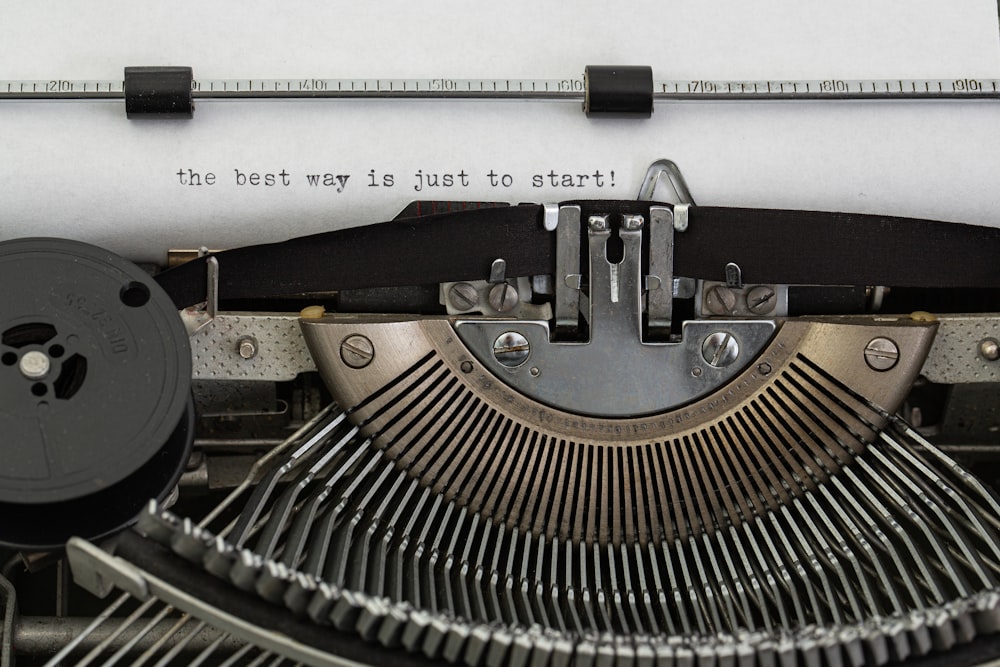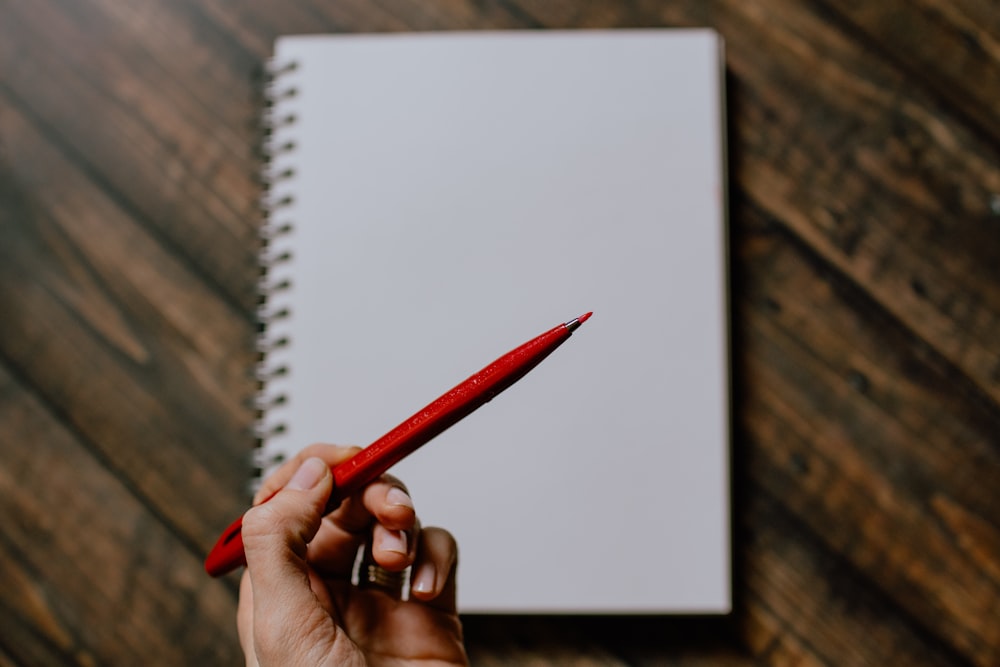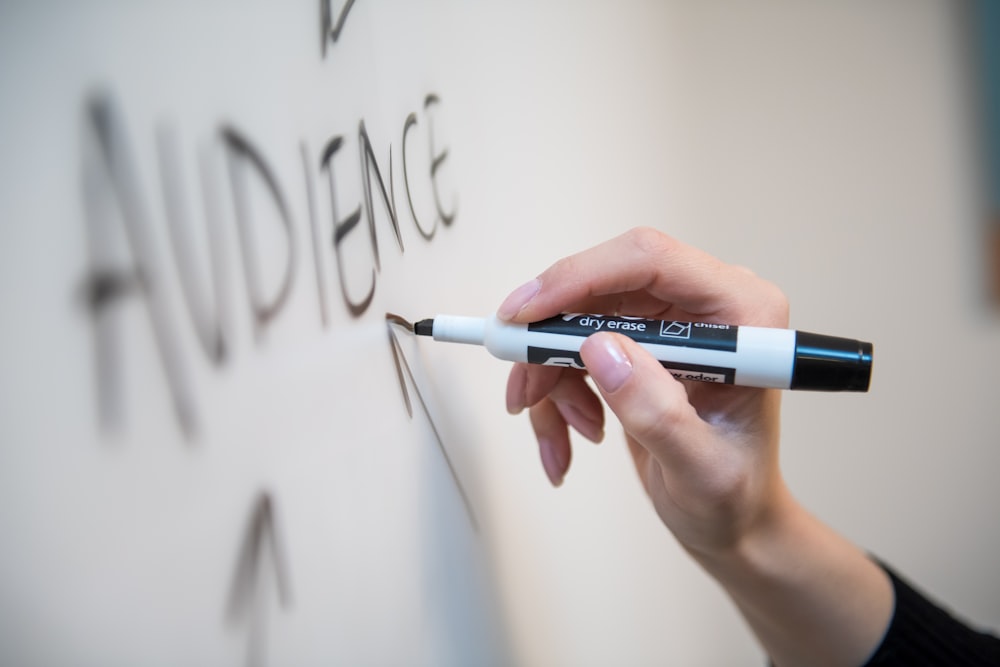How to Become a Writer and Launch Your Career
Writing is one of the most versatile, accessible, useful rewarding, flexible, and high-paying skills in today’s job market. So why isn’t learning how to become a writer at the top of everyone’s to-do list?
As you know by now, the primary focus of our website is to sharpen your writing skills with the goal of becoming a highly-demanded and handsomely paid freelance writer.
But on the path to becoming a good freelance writer, you first need to become a writer, and then become a better writer.
The great news for you is that even if you have ZERO experience, the path to become a writer isn’t as hard as it sounds. In fact, if you’re a novice or beginner writer and follow these steps to a T for the next 30-60 days ––– you’ll 3-5x your writing skills.
Ready to get started?
Here are some simple habits, practices, and routines on how to become a writer.
*Note: If you really want to level up your writing skills and become a freelance writer as quickly as possible, Take our free 21 Day Writing Challenge.
Practice Writing Every Day
This one’s a no-brainer.
Writing is a skill that takes time and practice to develop. As such, the best way to get better at it is to keep doing it. You don’t even need an hour session every day. Just 10-20 minutes of practicing writing daily can dramatically improve your skills, in the long and short term.

The easiest way to do this is to block out the same time, every day, to practice writing. Don’t put pressure on yourself to be “good.” No one is good when they start! The goal is to just practice. You’re going to get good by proxy, over time, by just practicing writing daily.
Sure, but what do I write about?
Get more tips on what to write about and how to get even better at writing here.
Places you can start are
Always Write in Active Voice
Avoid passive voice, always. Passive voice is not only less interesting, its also low-impact. It causes writers (and readers) to lose their focus and train of thought.

Think about this example:
- “The ball was caught by the dog.”
- “The dog caught the ball”.”
Which felt right? Sounded better? Choice 2. It’s always going to be that way.
No one wants to hear about how an object was acted upon. They want to hear how you, the subject, or the main character took action.
How to Become a Better Writer by Reading
Need inspiration for your writing? Read daily.
It doesn’t matter if it’s an article, book, or long social media post. Start reading daily, especially from other writers in the niches, markets, genres, industries, and areas that you’re interested in. While you’re reading, take notes about what you like, what you don’t, and what you find interesting or useful in their writing.

Take notes on and highlight:
- Formatting and layout (bold, italics, underlining, bullets, sentence and paragraph structure, etc.).
- Storytelling.
- What catches your attention?
- When and where do you get bored?
- Word use.
- Phrasing you like.
Take your favorite bits, articles, pieces and start adding them to a Google Doc or a folder in Evernote.
Think of it like any other kind of creative work or art form. The best artists, songwriters, musicians, etc. take what they like from their key influences, and recreate it in their own way. Just by reading great writing and practicing writing daily you’ll get more comfortable with the process, and start to develop your own voice and style
Choose a few publications, writers, or authors that you like or inspire you. Read some of their work every day for the next 30 days.
If you want to level up your writing skills faster, take our 30 Day Writing Challenge. We’ll teach you more on how to become a better writer, before. you jump into your freelancing career or side hustle.
How to Become a Writer: Outline Your Thoughts and Key TouchPoints
What makes writing way easier? Outlining.
Outline your theme and key touchpoints before you get started. Creating a simple outline will prevent writer’s block from even happening. It also gives you enough structure and freedom to just word-vomit under the items in your outline.
If you took the topic “Things that Make Me Angry”, with no outline, you could lose focus and runoff in all sorts of directions.

Or, you could make your job easier by giving yourself some structure, with an outline like this:
- Intro: Why I’m writing about things that make me angry.
- Traffic.
- Call waiting.
- Rude customers in coffee shops.
- Car problems.
- My coworker Randy, who chews gum at 120 decibels.
That should give you plenty enough of an outline to riff off of without stopping.
Want a more professionally-geared example? How about: “Things I’m learning on How to Become a Writer.”
- Intro: Why I want to be a better writer, and what it takes to become a good writer.
- Choosing the right idea or topic.
- Outlining the idea.
- Write, and don’t edit as you write.
- The value of editing and proofreading.
- Considerations about your audience and your critics.
See how much easier it makes it for you to just riff and enjoy yourself? Just enough structure to break away from writer’s block while giving you plenty of freedom to explore each of these subtopics in the outline.
I used to hate outlining, but once I started doing it for everything (even journaling), I started writing so much faster, and easier.
Proofread and Edit Your Own Writing
First and foremost, do NOT read and edit as you write. It’s only going to slow you down, frustrate you, and hamper your progress.
It’s critical when you are learning how to become a writer that you make writing as easy and enjoyable as possible.
So why proofread your own writing?
Proofreading and editing are essential skills for writers. Especially if you’re planning on becoming a high-earning freelance writer in the future.

They are tools that help you identify, correct, and minimize mistakes in your work. They force you to take a more objective, critical view of how you write, what you write, and the thought process behind your writing.
There are fewer ways to make you a better, faster writer than consistently proofreading and editing your own writing. It’s a true force multiplier.
As a bonus, proofreading and editing also make you a sharper critical thinker and better problem solver.
Your writing is synonymous with how you think. Use the proofreading and editing process as a practice in self-awareness, and auditing how you think. Treat them as tools that give you the power to observe how you think, communicate, and solve problems.
Some quotes for you to ponder:
“If You Can Think and Speak and Write, You Are Absolutely Deadly.” – Jordan Peterson
“Writing is thinking. To write well is to think clearly. That’s why it’s so hard.” – David McCullough
Practice Word Fasting
The concept of word fasting is simple. It is about limiting your use of words to avoid distractions and overstimulation.
Word fasting has no rules, but the most common one is to eliminate all unnecessary words you can from your writing. This may sound counterintuitive, but it’s true. The more words you use, the less impactful your writing is.
Fewer words make a greater impact.

Think of writing as addition by subtraction. Less is better, and better is better. Use what’s necessary and throw the rest away.
Read the following:
- Sentence 1: The large orange cat ran quickly across the course grass.
- Sentence 2: The cat sprinted across the lawn.
Does sentence one paint more of a verbal picture? Sure. But the shorter sentence packs more of a punch.
The human imagination is an incredible thing. It doesn’t need a lot of information to paint a picture for itself. Distract your reader less, and let their imagination run wild.
Let it fill in the gaps for you because it’s going to do that anyway.
Use fewer words. Use more meaningful words. That’s all!
How to Become a Writer: Edit Your Own Writing
Editing your own writing is another game-changer and skill multiplier. Getting better at editing and proofreading will help you become a better writer on hyperdrive.
The process I recommend for new writers (or any writer) is “How to Use Writing to Sharpen Your Thinking.”
Here it is…
Step 1: Edit for Yourself
Did you enjoy what you just wrote? Was it interesting and entertaining to you? Mission accomplished! If you didn’t go back, rearrange it, rewrite it, and spice it up.
Step 2: Edit For your Audience
If you aren’t writing for your business, brand, or website, who’s your audience?
When in doubt, choose the people who care about you, or who’re interested in the same things.

Pretend you have fans or a following. What would they want to hear about? More of? Less of?
Make that 2nd edit pass through the eyes of your audience. It’ll give you a different perspective on your writing.
Step 3: Edit For Your Critics
Talk about perspective! Editing for your real or theoretical critics is an unparalleled training exercise in writing and critical thinking. It gives you practice in getting out of your own head, and into someone else’s. This step in editing your own writing is really where you start to sharpen your skills.
The best ideas (and writing) aren’t the ones that you can’t build up anymore. They’re the ones you’ve relentlessly tried to tear down and still have value.

Ask yourself this:
- What’s the best 10-20% of this piece?
- What’s the worst 10-20%? What’s Irrelevant, confusing, etc.?
Emphasize or expand on the great parts and scrap, rewrite, or change anything that’s confusing, irrelevant, or doesn’t serve the overall goal of your writing.
How to Become a Writer: Rinse and Repeat
That’s all for now! Try this process for 30 days straight, and let me know how your progress is going. I recommend putting all of your writing in the same Google Doc, Folder, or folder in whatever word processor you like using the best.
When you’re ready to get started with your freelance writing career, be sure to check out: